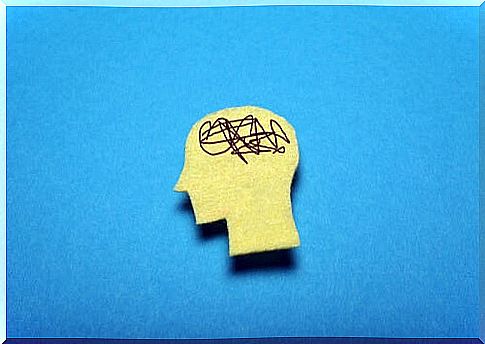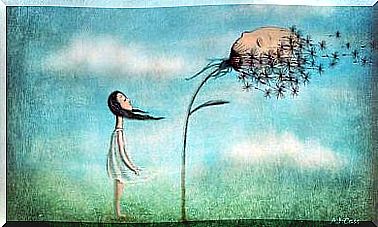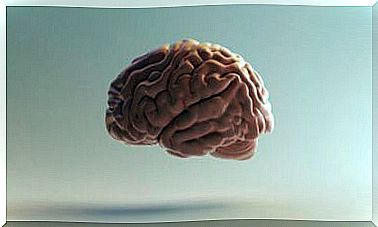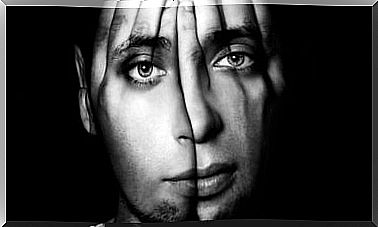Pathological Criticism: A Slow Form Of Self-destruction

Rebeca sees herself as a highly educated woman, good at her job, and smart. However, he has an obsession, that of persistently comparing himself to others. When he does, that pathological and devastating criticism emerges that tells him things like “deep down, you are a zero to the left , everyone does things better than you, you lack ingenuity, decision …”.
Although something like this is striking, we must take into account one aspect: that same negative voice lives within us and eager to devour our own self-esteem. You can wake up at the least expected moment; for example, when we lose a job or during a dependent relationship. Moreover, it is common for this type of dialogue to accompany us for a long time as a result of our education.
A parenting based on a lack of affection and validation very often makes us beggars for external reinforcement and also boycotters of our own identity and strengths. It is living in “suffering mode” because we always have the feeling that we are not good enough for almost anything. We compare ourselves, we criticize ourselves and we question every action, every decision, every aspect of ourselves in a meticulous way.
Few psychopathological processes are so insidious and capable of distorting all that we are. It is necessary, therefore, that we know a little more about what this reality consists of and how we can handle it.

Pathological criticism: what it is and how it appears
Pathological criticism is a concept that psychologist Eugene Sagan coined to describe something very common that he saw every day in his patients. All of us have a negative inner voice that attacks us from time to time with glee and merciless. However, yes, in most cases these attacks are specific and harmless, limiting themselves to the classics: “look, you’re stupid, you’ve just screwed up.”
Now harmless criticism is one thing, and the pathological criticism described by Dr. Sagan is another. While the first helps us to realize our mistakes through a small wake-up call, the second, far from having a practical and psychologically healthy purpose, what it achieves is to destroy us slowly and without compassion.
Likewise, we cannot leave aside a small detail: you have to be careful with that voice, because if you do not set limits, it can erode mental health.
How does pathological criticism appear and what is its origin?
We pointed it out at the beginning. On average, the root of pathological criticism is in childhood. Our parents are responsible for guiding us through the world, telling us what is right and wrong and giving us security at each step and each experience.
If what we receive are reinforcements based on criticism, on exclusively pointing out what we do wrong and highlighting our mistakes, ignoring the successes, virtues and potential, we will grow up with fear and insecurity. And having to grow up without external approval hurts self-esteem.
We develop with the emotional residues that our parents left in us, thus creating that breeding ground with which pathological criticism emerges early. Sooner or later this dimension will acquire greater power, manifesting itself as follows:
- Through the shame. Negative internal dialogue always questions us, annuls us and makes us tremble at each decision, at each step we take.
- It has the voice of a father or a mother who censures, hence words such as “useless, you are clumsy, you are worthless, others do it better than you”
- It compares you constantly. It will always force you to take outside references to measure your abilities and, then, humiliate yourself.
- He loves blocking you, preventing you from solving problems and taking advantage of opportunities.
- He is fixated on reminding you ” how bad you do things .”
Currently, in order to assess this type of debilitating psychological process, we have the LOSC scale (The Levels of Self-Criticism). Research carried out at the University of Pennsylvania supports the usefulness of this instrument because it focuses on two of the most common forms of pathological criticism: the one that focuses on comparing oneself with others and the one that focuses on oneself by underestimating all area and behavior.

Learn to disable negative criticism
Pathological criticism does not forgive, does not rest and does not disappear overnight. It installs like a virus and weakens us until it destroys our identity, self-esteem, our projects and personal growth. It is therefore necessary to intervene against it and deactivate it.
To do this, it is interesting to reflect on a series of strategies that we must integrate into our thinking to keep them always present. The commitment to detect and filter negative review must be constant.
Take the blindfold off criticism: what do you want from me?
It is necessary that you integrate a message in your mind: within me there is a voice that only seeks to destroy me and veto my happiness. I must unmask her and ask her what she wants from me every time she repeats those messages.
- For example, if a voice assaults you to say “you’re useless,” ask why. «What are you looking for when you define me like this? Do you want me to suffer?
Be brave and respond to pathological criticism
Pathological criticism is approached with self-esteem, strength, and assertiveness. We need to make use of constructive and positive self-affirmations.
- For example, before the expression “you are useless” it is appropriate for us to say the following “it is true that, from time to time I am wrong, that I am fallible. However, it is not true that it is useless. In fact, I am able to overcome and act to achieve what I need.
Disable negative dialogue
Pathological criticism is not useful, it destroys and cancels as a human being. Constant and chronic negative dialogue will lead you by the hand into the abyss of anxiety and depression. Don’t follow it, break that effect, disable its mechanism.
- For example, to that voice that insists on telling you that “you are useless”, answer the following: ” I accept that you tell me that, but from today and forever your voice will be like the wind that escapes through a window. I will let it pass, because you do not serve me, because I have decided to value myself as I deserve and you do not help me ».
To conclude, although it is true that it is difficult to deactivate the virus of this devastating self-criticism, it is more difficult to realize that we have been living with this internal tenant for years. Let us be aware of this and ask for professional help if we need it.









